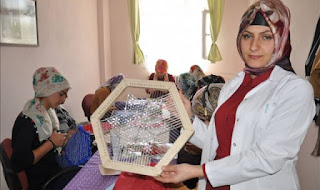Citrus Canker Update

"The state clearly won this case, and I wasn't going to leave that room until I was sure that was reflected.''That's juror Kevin Edwards, commenting on the remarkable defense verdict in the Broward citrus canker case. Remember, this was a trial where liability was presumed, and the jurors were only deciding damages.
Plaintiffs' attorney Bobby Gilbert, who called the verdict a "partial victory and a partial defeat," was already talking appeal:
Hmm, as I suspected yesterday, this is not good -- indeed, the jury found the State's science "credible." That's a big problem, unless Bobby can get the appellate court to keep it out.After the verdict was read, several jurors told homeowners' attorney Robert Gilbert that state scientists' assertion that the trees were subject to future infections was credible. Gilbert had fought to bar that testimony from trial.
''The judge allowed them to hear flawed science, and that was the determining factor in the jury's decision,'' Gilbert said. ``I wouldn't use the word insult, but the award was far less than full compensation, and we're not satisfied.''
The state embarked on its aggressive eradication program in 2000 to prevent the spread of canker -- a disease harmless to humans but one that blemishes fruit and debilitates trees. Despite a decade of work and about $1 billion in costs, the program failed. The state and the federal government abandoned the practice in 2006.
Attorneys for the state looked at the verdict as a partial victory, taking note of the praise jurors found in their evidence.
That could bode well for the state, which faces similar court challenges in Miami-Dade, Palm Beach, Lee and Orange counties. The state destroyed about 578,000 trees ''exposed'' to canker, including 133,700 in Broward and 249,000 in Miami-Dade.
''This was a defense verdict,'' said state attorney Wes Parsons. ``This was within the realm of what we thought might happen. We felt the trees lacked value of any kind.''
APPEALS LIKELY
Both sides are expected to appeal the decision -- the state wanting to pay less and attorneys for homeowners hoping a new jury will raise the value of the trees.
Several homeowners, present for the 7 p.m. reading of the verdict, expressed disappointment. ''This is a big defeat,'' said Tim Farley of Parkland, who lost eight trees to the program in 2000. ``The Department of Agriculture put on a smoke screen, and the jury didn't see through it. This is not just and fair compensation.''
What to do with the other cases?


Yorumlar
Yorum Gönder